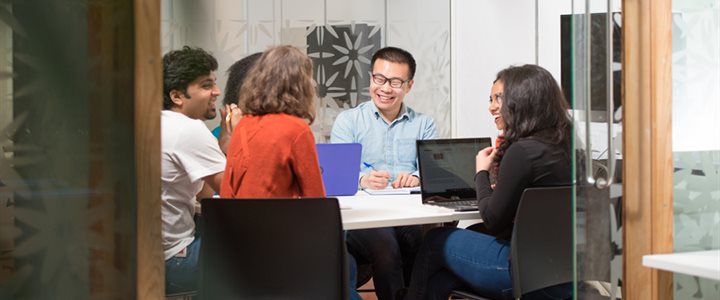
Research
Our research is rooted on the distinctive competencies of the Organisational Behaviour and Human Resource Management Department and our expertise aligns with four strategic priorities:
The changing nature of work and employment
Perhaps the most striking feature characterising the workplace in the recent years is how quickly working patterns and practices have had to shift and change, and the scale of this adaptation across all sectors and types of organisations.
There is also consensus that the Covid-19 pandemic accelerated the pace of digitalisation, compounding some of its effects.
Current evidence clearly suggests that digitalisation can be both an opportunity and a threat.
Employees and managers alike have had to adapt to technology-mediated working practices, taking advantage of the opportunities but also coping with the challenges of remote communication, teamwork and leadership while striving to ensure organisational resilience.
Our research topics include:
- knowledge management, uses of big data and appropriation
- the impact of technological change/information society on the workplace and management
- leadership
- inter- and intra-organisational collaboration
- work in the digital era
Equality, diversity and inclusion at work
Equality, Diversity and Inclusion (EDI) initiatives transfer across institutional and cultural contexts in which international organisations operate.
There has been inadequate attention as to how cultural diversity intersects with other forms of diversity to influence EDI policies and practices.
Our research topics include:
- tackling discrimination and promoting equality, diversity and inclusion at work
- diverse work patterns
- migrant work
- careers changes and transitions
- professions
- service work
Sustainability, resilience and organisation
Climate change will have a huge impact on work organisations in the next 20 years regardless of industry or sector. Although sustainability is often reserved for discussions of external relations with stakeholders and broader perceptions of organisations, matters of sustainability have a huge impact on leaders and employees attempting to navigate decisions and projects associated with sustainability and sustainable issues.
New forms of work and employment have intensified trends towards different kinds of dependency and precarious jobs as well as insecurity, leading to increased challenges relating to the health, safety, and well-being of the workforce.
At same time, these changes also offer new opportunities to reduce psychosocial risks or better manage them, fostering improvements in job quality and promoting a positive psychosocial work environment.
The frequency of occupational risks and hazards is predicted to increase in the future. Studies highlight the increasing prevalence of psychosocial risks and the importance of promoting well-being and sustainable work to ensure that organisations are ready to maximise the opportunities and mitigate the challenges presented by the future of work.
Our research topics include:
- sustainable/green HRM
- sustainability at work
- wellbeing, psychosocial factors and organisational performance
- work-life balance
- occupational health and safety and voluntary standards
Work, employment and organisation across borders and space
Technological development, climate change, global pandemics, demographic shifts and globalisation are transforming the world of work.
These forces are impacting who works, where and when, and how work is organised and managed. Given the increasing pace of these changes and the challenges and opportunities they present, it is critical that efforts are taken to develop better understanding of work, employment and organisation across borders and space.
Our research topics include:
- cross-cultural management (including HRM in China, Africa-China, Emerging economies, Eastern European economies, national culture and HRM practices, expatriate work experiences in China’s financial services sector, the use of cross border and cross-cultural social networks and social capital in business and management)
- the impact of digitalisation on the workplace (including E-HRM practices, remote work: practices and outcomes, health informatics, big data, scientometrics)
Case studies



